Unfair Trade Practices
Guide G-224
Revised by Bryce Jorgensen
College of Agricultural, Consumer and Environmental Sciences, New Mexico State University
Authors: Extension Family Resource Management Specialist, Department of Extension Family and Consumer Sciences, New Mexico State University. (Print Friendly PDF)
If you feel you have been misled in a business transaction, it is possible you have been deceived. You are protected from deceptive or unfair business transactions under the Consumer Practices Act. Examples of unfair, deceptive, or misleading business transactions are credit card companies falsely promising to remove negative information from clients’ credit scores, and a low “fixed” mortgage rate advertisement that does not mention how long the low rate lasts. NMSU Extension Guide G-205, Don’t Be Robbed by Fraud, describes steps you can take to avoid being a victim of fraud.

© Pressmaster | Dreamstime.com
Unfair, deceptive, and misleading business practices are prohibited under the Unfair Trade Practices Act, which was designed to prevent unfair competitive and deceptive business practices, investigate complaints on such practices, reward or punish parties involved, and provide reports and recommendations to Congress. The act lists 17 categories of unfair methods of competition or deceptive acts or practices that are illegal. The law also prohibits chain referral sales and misrepresentation of motor vehicles.
Unfair or Deceptive Trade Practices
An unfair or deceptive trade practice is defined as any false or misleading oral or written statement, visual description, or other representation of any kind knowingly made in connection with the sale, lease, rental, or loan of goods or services, in the extension of credit, or in collection of debts, which may deceive or mislead any person. This includes
- representing goods or services as those of another when the goods or services are not those of another;
- causing confusion or misunderstanding as to the source, sponsorship, approval, or certification of goods or services;
- causing confusion or misunderstanding as to affiliation, connection or association with, or certification by another;
- using deceptive representations or designations of geographic origin in connection with goods or services;
- representing that goods or services have sponsorship, approval, characteristics, ingredients, uses, benefits, or quantities that they do not have or that a person has a sponsorship, approval, status, affiliation, or connection that he/she does not have;
- representing that goods are original or new if they are deteriorated, altered, reconditioned, reclaimed, used, or second hand;
- representing that goods or services are of a particular standard, quality, or grade, or that goods are of a particular style or model, if they are of another;
- disparaging the goods, services, or business of another by false or misleading representations;
- offering goods or services with intent not to supply them in the quantity requested by the prospective buyer to the extent of the stock available;
- offering goods or services with intent not to supply reasonable, expectable public demand;
- making false or misleading statements of fact concerning the price of goods or services, the prices of competitors, one’s own price at a past or future time, or the reasons for, existence of, or amounts of price reduction;
- making false or misleading statements of fact for the purpose of obtaining appointments for the demonstration, exhibition, or other sales presentation of goods or services;
- packaging goods for sale in a container that bears a trademark or trade name identified with goods formerly packaged in the container, without authorization, unless the container is labeled or marked to disclaim a connection between the contents and the trademark or trade name;
- using exaggeration, innuendo, or ambiguity as to material fact or failing to state a material fact if doing so deceives or tends to deceive;
- stating that a transaction involves rights, remedies, or obligations that it does not involve; and
- stating that services, replacements, or repairs are needed if they are not needed.
The act also protects consumers in case a business fails to deliver the quantity or quality of goods or services contracted for.
Unconscionable Trade Practice
In addition to unfair trade practices, the law prohibits any unconscionable trade practice. This is defined as any act or practice in connection with the offering of or actual sale, lease, rental, or loan of any goods or services, in the extension of credit, or in the collection of debts which is detrimental to a person because it
- takes advantage of the lack of knowledge, ability, experience, or capacity of a person to a grossly unfair degree; or
- results in a gross disparity between the value received by a person and the price paid.
Chain Referral Sales
Chain referral sales are also prohibited by law. A chain referral sale is one in which the buyer is induced to purchase merchandise with the promise of a commission, reduced price, or rebate on the condition that the buyer will give the seller names of other prospective buyers.
Misrepresentation of Motor Vehicles
It is illegal to willfully misrepresent the age or condition of a motor vehicle. The seller cannot reset the odometer, regroove the tires, or perform chassis repair unless he/she informs the buyer that the work has been performed.
The seller of a used motor vehicle must give the buyer, at the time of sale, an affidavit that
- describes the vehicle;
- states, to the best of the seller’s knowledge, whether there has been an alteration or chassis repair due to wreck damage;
- indicates the mileage on the vehicle at the time of the sale; and
- indicates that, to the best of the seller’s knowledge, the odometer has not been altered.
In the case of a private party sale of a vehicle to another private party, an affidavit shall be given only upon the request of the purchasing private party.
Exception
The laws that are permitted under the regulatory body of New Mexico and the United States will not apply under the Unfair Trade Practices Act. Although, any actions that the state of New Mexico laws do not state will then refer to the Unfair Trade Practices Act.
Penalty
If someone is admittedly breaking any of the laws under the Unfair Trade Practices Act, in the state of New Mexico, an attorney general will be appointed by the court to recover a civil penalty not exceeding $5,000 per violation.
If the person who violated the Unfair Trade Practices Act was a first-time offender, then the appointed attorney general may accept a written assurance that the person who broke the law will stop any unlawful practices under the Unfair Trade Practices Act. The attorney general will set a date and write up an agreement that they will return their customers’ money and will accept returns of the property or other things that were sold through the unlawful business transaction.
Enforcement
The Federal Trade Commission and the Attorney General of New Mexico are responsible for enforcing the Unfair Trade Practices Act. If you feel that you have been misled under the Unfair Trade Practices Act, please contact the New Mexico Attorney General’s Office or the Federal Trade Commission.
Consumer & Family Advocacy Services Division
Attorney General’s Office
P.O. Drawer 1508
Santa Fe, NM 87504-1508
505-490-4060
1-844-255-9210
Federal Trade Commission
1-877-FTC-HELP (382-4357)
TTY: 1-866-653-4261
For further reading
G-205: Don’t Be Robbed by Fraud
https://pubs.nmsu.edu/_g/G205/
G-216: You Can Check Your Credit Rating
https://pubs.nmsu.edu/_g//G216/
G-260: Small-Dollar Predatory Lending and Bad Loans
https://pubs.nmsu.edu/_g/G260/
Original author: Jackie Martin, Extension Family Finance Specialist. Subsequently revised by M. Fahzy Abdul-Rahman, Extension Family Resource Management Specialist.

Bryce Jorgensen is the Extension Family Resource Management Specialist at NMSU. He earned his Ph.D. at Virginia Tech. As a consultant, trainer, author, and speaker, he focuses on achieving individual, relational, and financial wellness for New Mexicans. An expert in the psychology of change, mindset, and behavioral economics, he provides customized programs leading to life and financial success.
To find more resources more resources for your business, home, or family, visit the College of Agricultural, Consumer and Environmental Sciences on the World Wide Web at pubs.nmsu.edu
Contents of publications may be freely reproduced, with an appropriate citation, for educational purposes. All other rights reserved. For permission to use publications for other purposes, contact pubs@nmsu.edu or the authors listed on the publication.
New Mexico State University is an equal opportunity/affirmative action employer and educator. NMSU and the U.S. Department of Agriculture cooperating.
Revised October 2018 Las Cruces, NM

